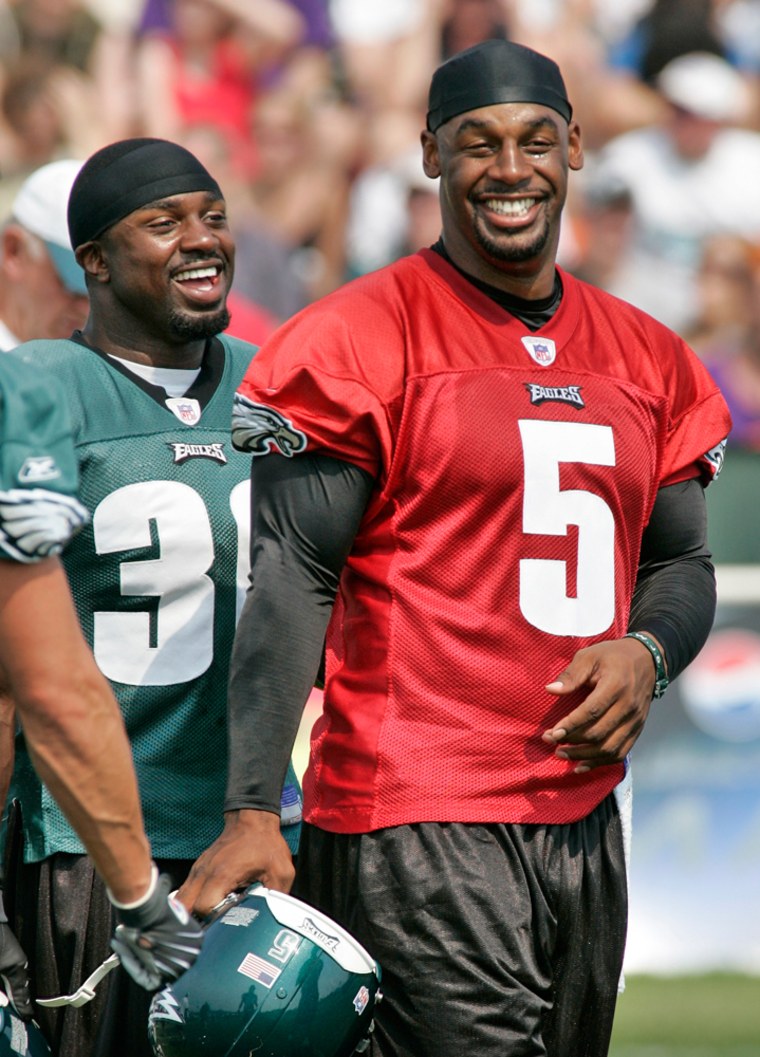There's more competition than ever before when it comes to vying for the entertainment dollar, making a powerful brand a top priority for many professional sports teams.
No American sports team has done this as well as the New York Yankees, who are worth $1.2 billion and have set themselves apart by establishing their own cable TV network and forging a $95 million partnership with German apparel maker Adidas. Parent company Yankee Global Enterprises has also reached player development and sponsorship agreements with Chinese and Japanese companies in hopes of broadening its reach.
Efforts are already paying off: Yankees home attendance increased by 800,000 over the past four years, to 4.2 million last season, despite rising ticket prices. The Yankees brand, worth $217 million, has increased in value 44 percent the past three years and is the most valuable in baseball.
Market size plays a big role in the value of a team, and few teams can hope to match the Yankees brand. But buying a team location is not something an owner can usually change. Image and prestige — the constitution of a brand — are something management can directly control and alter by dint of performance, marketing, integrating revenue sources and public relations. Increasing a team's brand value is essential, not just for landing the best stadium and sponsorship deals domestically, but for selling merchandise and media platforms abroad.
Forbes calculated the brand value of the 122 teams in the NBA, NFL, NHL and MLB by adding up their revenues from sponsorships, naming rights, local media, tickets and merchandise not attributable to demographics.
Unlike rights fees from national media deals, which are distributed equally amongst all teams in a league, revenue generated from these streams remain almost entirely in a team's own coffers. Because our study focused on growth rather than absolute value, it is not surprising that most of the teams on our list are turnaround situations.
The Toronto Blue Jays, owned by cable titan Ted Rogers, were floundering until Rogers Communications bought controlling interest of the team and stadium and meshed them into one marketing powerhouse with cable and radio properties. The Blue Jays are once again contenders to make the post-season, bringing fans back to the Rogers Centre. Although the brand value of the Blue Jays is just $33 million, $21 million below the league average, it has increased 127 percent the past three years. A stronger brand has helped double the value of the team to $344 million.
In the NFL, the Philadelphia Eagles take the top spot with a 113 percent gain in brand value, to $90 million. Bad-boy receiver Terrell Owens was shipped out to the Dallas Cowboys before last season, allowing the fans and media to focus on quarterback and team leader Donovan McNabb, one of the league's best people and images.
This was a smart business move by Eagles owner Jeff Lurie, because McNabb will continue to get the City of Brotherly Love plenty of positive media attention and help the team sell lots of merchandise. Meanwhile, Owens has been nothing short of an embarrassment to the Cowboys, and his selfish antics factored into the departure of future Hall of Fame coach Bill Parcells after last season. The team is now worth $1 billion, fifth in the NFL.
In basketball, the Cleveland Cavaliers were a perennial laughingstock until they drafted LeBron James out of high school four years ago. Drafting a player out of high school is always a big risk, but the Cavaliers knew that the NBA has long sold its biggest stars as the league's marquee attraction. If you doubt us, then you missed King James co-hosting the ESPY Awards in July. On the court, LeBron led the team to the NBA finals this season, and Cavs tickets are now in big demand.
The key for team owner Dan Gilbert will be to get LeBron the supporting cast he needs to win a championship so the young superstar does not flee Cleveland after the 2009-2010 season. The positive impact of LeBron on the Cavs' brand has helped the team to crack the top 10 among basketball franchise with a value of $380 million.
Hockey's biggest success story is the Buffalo Sabres. When Tom Golisano bought the Sabres in 2003, things looked bleak: the team filed for bankruptcy protection only weeks earlier while in the midst of a last-place season. Golisano lowered ticket prices to get fans back (the strategy used by Art Moreno after he bought the Anaheim Angels).
Now that Buffalo's a Stanley Cup contender, fans have flocked to HSBC Arena, triggering a 38 percent growth in ticket revenue. With a young and exciting team and solid financial footing, the Sabres brand will likely continue to grow as long as Golisano owns the team. Buffalo's team value has jumped 45 percent over the past two years, to $149 million.
